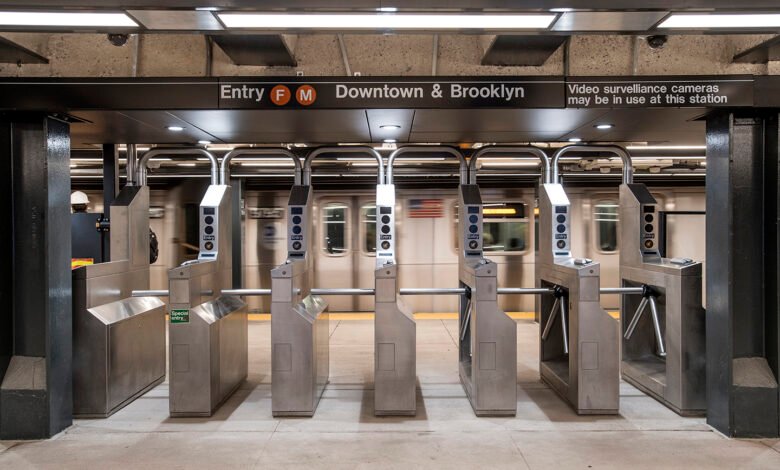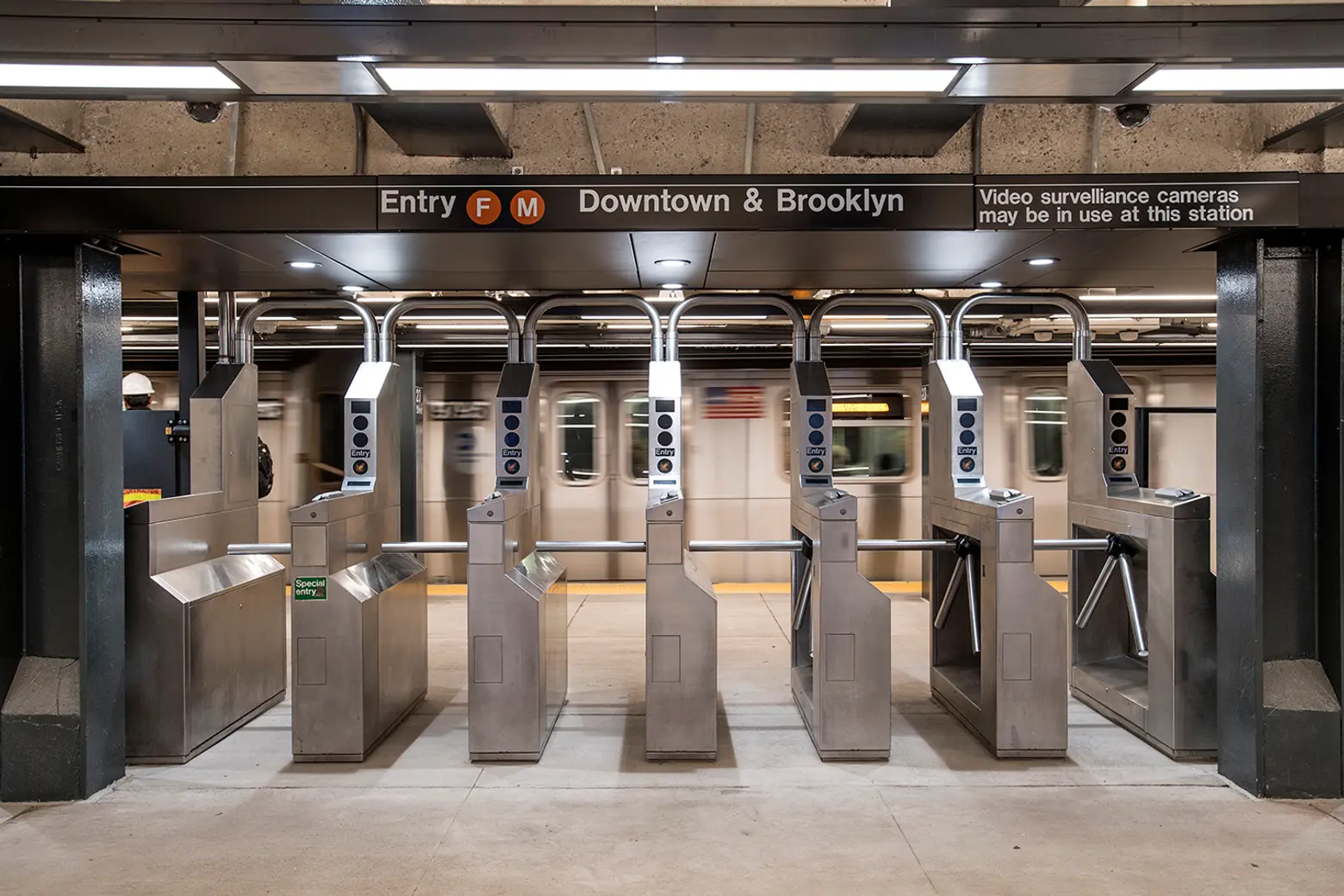NYC subway and bus fare will likely rise to $3 in 2026


The price to ride New York City subways and buses will likely increase to $3 in January, MTA officials said during the agency’s monthly board meetings on Wednesday. Originally planned for August, the proposed fare hike was delayed to allow for a required public comment period. The increase will coincide with the end of MetroCard sales as the MTA transitions fully to its OMNY tap-and-go system. While the increase is widely expected to pass, it still requires final approval from the MTA board following public hearings this fall.
Officials also confirmed the concerns of many transit riders: the MTA plans to eliminate the 30-day unlimited fare option, leaving the seven-day fare cap as the only way to get unlimited rides. Introduced in February 2022, the fare-capping program upgrades OMNY users to unlimited rides once they take 12 trips within a seven-day period.
With the fare change, the cost to unlock unlimited rides under the seven-day cap will rise from $34 to $36. After riders spend that amount in a seven-day period, additional trips will be free. The MTA is also introducing a new unlimited weekly pass for express bus users once they spend $67 in a week, similar to the seven-day unlimited pass for subway and bus riders.
Commuter trains will also cost 4.4 percent more and tolls on bridges and tunnels will increase by 7.5 percent, which the MTA says is necessary to meet inflation and revenue goals. Metro-North and Long Island Rail Road riders will also no longer be able to purchase round-trip tickets, and must buy day passes that expire four hours after activation.
E-ZPass tolls will increase by 52 cents on the Robert F. Kennedy, Whitestone, Throggs Neck, and Verrazzano-Narrows bridges, as well as the Queens-Midtown and Brooklyn-Battery tunnels. The Henry Hudson Bridge toll will rise by 24 cents, while tolls for the Cross Bay and Marine Parkway bridges will go up 20 cents.
Four percent fare hikes are included in the MTA’s budget every two years. The last fare hike took effect in August 2023, when the MTA raised the base fare by five percent from $2.75 to $2.90. Seven-day passes rose from $33 to $34, and 30-day unlimited passes increased from $127 to $132. Express bus fares climbed from $6.75 to $7, while the express seven-day pass went from $62 to $64.
Before this, the last fare increase occurred in 2019, when the price of a monthly subway and bus pass rose from $121 to $127, and the weekly pass increased from $32 to $33. The agency still plans to implement further increases in 2027 and 2029.
Mayor Eric Adams released a statement Wednesday criticizing the proposed fare hike, calling it an added economic burden for transit riders already grappling with the city’s affordability crisis.
“Every day, the Adams administration is working hard to make New York City safer and more affordable—and we’re delivering real results,” the mayor said. “But New Yorkers are still feeling the affordability crunch, and the more than 5.5 million MTA riders each day deserve fast, reliable, and affordable public transit.”
Adams continued: “Proposing a fare hike without demonstrating meaningful improvements is offensive to hard-working New Yorkers, and that’s why I’m urging all board appointees to vote no on this proposal. We strongly oppose this fare increase and remain committed to fighting for a more affordable and equitable city.”
In his statement, Adams also argued that the MTA has “no excuse” to raise fares, pointing to the “billions of dollars in dedicated funding” expected from congestion pricing. However, this revenue has already been earmarked for critical repairs and upgrades to the transit system and cannot be used for the agency’s regular operating budget, according to the New York Times.
MTA Chair & CEO Janno Lieber defended the proposed increase, arguing that public transit remains one of the few services that helps keep New York affordable.
“Transit is one of the few things that makes New York affordable, and we’re keeping it that way. In fact, since 2018, according to the comptroller, the price of transit has gone up just 16 percent, while the price of housing—which is the central issue in our affordability crisis—has gone up 68 percent.”
The MTA plans to stop the sale of MetroCards by December 31, making OMNY the only payment option. Retail partners, such as bodegas and drugstores, will stop selling MetroCards this fall. Riders will be able to continue using their MetroCards through 2026, with the MTA expected to confirm the exact end date later, as 6sqft previously reported.
RELATED:
Source link




